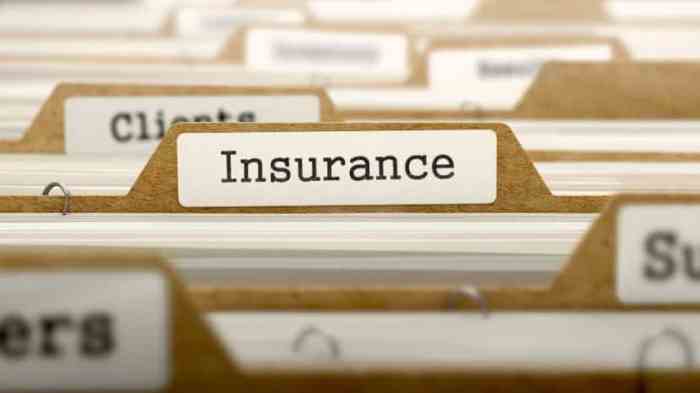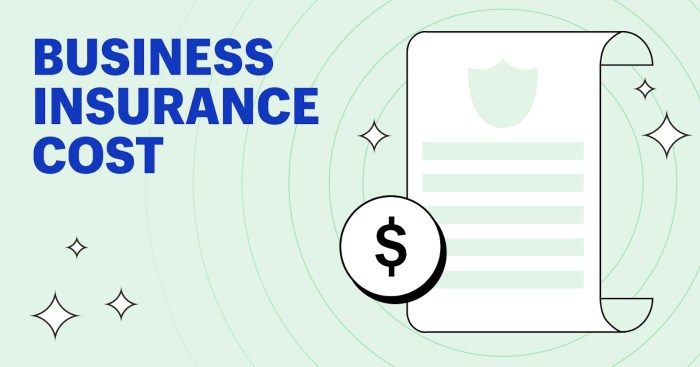Embarking on the journey of finding Cheap Small Business Insurance That Doesn’t Cut Corners leads us through a path of discovering budget-friendly options without sacrificing essential coverage. As small business owners navigate the realm of insurance, they are faced with the crucial task of securing protection that is both cost-effective and comprehensive.
Exploring the intricacies of insurance for small businesses unveils a landscape of options where affordability meets reliability, ensuring businesses are safeguarded against risks without compromising quality.
Researching Cheap Small Business Insurance

When looking for affordable small business insurance options, it's essential to conduct thorough research to find the best coverage that fits your budget. Here are some tips to help you navigate the process:
Comparing Insurance Quotes
- Obtain quotes from multiple insurance providers to compare prices and coverage options.
- Consider working with an independent insurance agent who can help you navigate the complexities of different policies.
- Look for discounts or bundled packages that may offer more value for your money.
Importance of Coverage Limits and Exclusions
- Ensure you understand the coverage limits of the policy to make sure it meets your business needs.
- Pay attention to any exclusions in the policy that may leave your business vulnerable to certain risks.
- Consider the potential costs of not having certain types of coverage in place and weigh them against the affordability of the policy.
Types of Small Business Insurance to Consider
When it comes to running a small business, having the right insurance coverage in place is crucial to protect against unexpected risks and liabilities. Here are some key types of insurance that small businesses should consider:
General Liability Insurance
General liability insurance is essential for small businesses as it provides coverage for third-party claims of bodily injury, property damage, and advertising injury. This type of insurance can protect your business from common risks such as slip-and-fall accidents, customer property damage, and defamation lawsuits.
Having general liability insurance in place can help safeguard your business from costly legal expenses and settlements.
Property Insurance
Property insurance is another important coverage for small businesses, especially if you own or lease commercial property. This type of insurance provides protection for your business property, including buildings, equipment, inventory, and furniture, against risks such as fire, theft, vandalism, and natural disasters.
In the event of a covered loss, property insurance can help your business recover and continue operations without facing significant financial setbacks.
Factors to Consider When Choosing Cheap Insurance
When looking for cheap small business insurance, it's important to consider several key factors to ensure you are getting the best coverage for your needs. Assessing the financial stability of an insurance provider, evaluating their reputation and customer reviews, and reviewing the claims process and customer support are crucial steps in making an informed decision.
Financial Stability of Insurance Provider
One of the most important factors to consider when choosing cheap insurance is the financial stability of the insurance provider. A financially unstable insurer may not be able to fulfill claims in the event of a loss, leaving your business vulnerable.
Look for insurance companies with high ratings from independent rating agencies like A.M. Best, Standard & Poor's, or Moody's to ensure they have the financial strength to meet their obligations.
Reputation and Customer Reviews
Before selecting an insurance provider, take the time to research their reputation and read customer reviews. A company's reputation can give you insight into their customer service, claims handling, and overall satisfaction levels. Online reviews from other small business owners can provide valuable information about the insurer's reliability and responsiveness
Claims Process and Customer Support
Another important factor to consider is the efficiency of the claims process and the quality of customer support offered by the insurance provider. In the event of a claim, you'll want to work with an insurer that has a streamlined claims process and responsive customer support team.
Look for reviews or testimonials that highlight positive experiences with the claims process and customer service to ensure you'll receive the support you need when you need it most.
Avoiding Pitfalls of Cutting Corners with Insurance

When it comes to small business insurance, cutting corners can have serious consequences. Opting for extremely cheap insurance may seem like a cost-effective solution in the short term, but it can leave your business vulnerable to various risks and liabilities in the long run.
Risks of Opting for Extremely Cheap Insurance
- Minimal Coverage: Extremely cheap insurance policies often provide minimal coverage, leaving your business exposed to potential lawsuits, property damage, or other unforeseen events.
- Lack of Customization: Cheap insurance plans may not offer the flexibility to customize coverage based on your specific business needs, leaving crucial aspects unprotected.
- Poor Customer Service: Low-cost insurance providers may offer subpar customer service, making it difficult to navigate the claims process or get timely assistance when needed.
Impact of Inadequate Coverage During a Crisis
- Financial Strain: Inadequate coverage can result in significant financial losses for your business, especially in the event of a lawsuit or costly damages that are not fully covered by insurance.
- Reputation Damage: A crisis without proper insurance coverage can tarnish your business's reputation, making it hard to regain trust from customers, partners, and stakeholders.
- Legal Consequences: Without sufficient coverage, your business may face legal repercussions that could lead to closure or bankruptcy.
Tips for Finding a Balance Between Affordability and Sufficient Coverage
- Assess Your Risks: Identify the specific risks your business faces and prioritize coverage that addresses those risks adequately.
- Compare Quotes: Obtain quotes from multiple insurance providers to compare coverage options, pricing, and customer reviews before making a decision.
- Consult with an Expert: Seek advice from insurance professionals or brokers who can help you navigate the complexities of insurance policies and find the right balance for your business.
- Review and Update Regularly: Regularly review your insurance coverage to ensure it aligns with your business's evolving needs and update policies as necessary.
Final Wrap-Up
In conclusion, Cheap Small Business Insurance That Doesn’t Cut Corners offers a balance between financial prudence and adequate protection, empowering businesses to thrive in a competitive landscape while mitigating potential risks. By understanding the nuances of affordable insurance without cutting corners, businesses can navigate the complexities of risk management with confidence and peace of mind.
FAQ
Is it possible to find cheap small business insurance without compromising on coverage?
Yes, by comparing quotes, considering coverage limits, and exploring different insurance providers, it is possible to find affordable insurance that still offers comprehensive coverage.
What are the key types of insurance coverage essential for small businesses?
Key types include general liability insurance, property insurance, and potentially other specialized coverage depending on the nature of the business.
How can inadequate coverage impact a small business during a crisis?
Inadequate coverage can leave a business vulnerable to financial losses, lawsuits, and disruptions in operations during a crisis, potentially leading to long-term consequences.
How important is it to assess the financial stability of an insurance provider?
Assessing the financial stability of an insurance provider is crucial as it ensures that the provider can fulfill claims and obligations in the event of an incident.
















